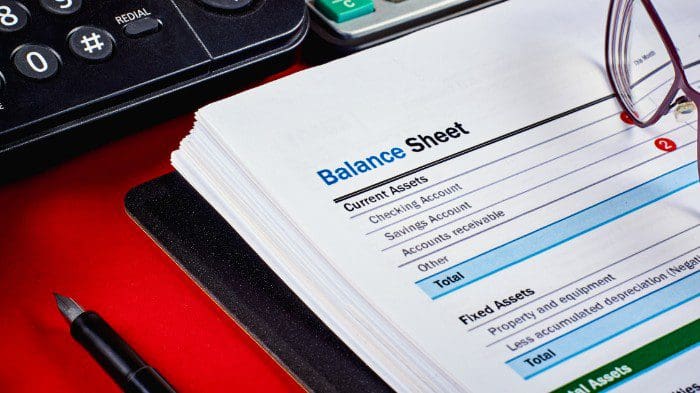The Bookkeeping Basics: Tracking Expenses, Invoicing & Filing

Are you new to bookkeeping or need help keeping track of your expenses, invoices and filings? Don’t worry; you’re not alone. Bookkeeping can be confusing for beginners, but with a bit of guidance, you’ll get the hang of it in no time. Plenty of resources are available online if you’re starting out with bookkeeping for your business or looking for tips on improving your bookkeeping practices. Some great places to start include sites like The Australian Government Business Support site or accounting software sites like Xero and Quickbooks, where you can learn more about the basics of bookkeeping and get helpful advice on invoicing and other essential topics.
In our latest blog post, we’ll provide you with some of our go-to bookkeeping tips, including how to start tracking your expenses, invoicing clients and filing your business’ taxes. So sit back and relax – we’re about to teach you everything you need to know to start bookkeeping!
Record-keeping Tips for Small Businesses
Effective record-keeping is essential for success, whether you are just starting out or have been running a small business for years. At its most basic level, bookkeeping involves tracking your expenses and recording all of your financial transactions. For a small business owner, it is vital to track your expenses, as these can vary greatly depending on the type of business you run, business expenses, the time of year, consumer demand, business liabilities and the services or products you offer.
There are many different approaches to bookkeeping, but the key is to find a strategy that works best for you and your unique business needs. One helpful tip includes utilising accounting software to help simplify record-keeping to organise financial data from statements into spreadsheets or other easily accessible formats. Another essential strategy is to stay up-to-date with invoicing practices to ensure timely payment of outstanding bills or fees the business owes. With a consistent bookkeeping method, you can take control of your finances and provide stability for your small business now and in the future.
Tracking Expenses – What to Keep Track of and How
Whether you’re a small business owner just starting out or just someone who likes to keep detailed records of your business transactions, it’s important to know what to track and how. At the most basic level, bookkeeping includes tracking your income and expenses, both large and small. For a business owner, it’s crucial to break things down into categories, including materials and supplies, labour costs, fixed assets (what your business owns), utility bills, and other relevant expenses (all the money your business owes).
Choosing a Bookkeeping System
Additionally, it’s also important to be consistent when tracking your expenses. This means having a set system for bookkeeping so that all entries are recorded in the same way each time. If you’re a small business owner, it may be easiest to implement a single-entry system, where you record each transaction once, versus the more complex double-entry system that records each, once as a debit and once as a credit; often useful for accrual accounting. So if you’re ready to take charge of your finances and need well-informed data to make future business decisions, there’s no better time than now to start tracking your business’s financial transactions!

Invoicing Clients – What Information to Include, When to Send Invoices, and Following Up
Invoicing clients is a key part of small business bookkeeping. There are a few important things to keep in mind when it comes to invoicing. First, be sure to include all necessary information on the invoice, such as the client’s name and address, as well as details about the products or services provided and their cost.
Additionally, send invoices out promptly so your clients know exactly what they owe and when they need to pay. Furthermore, following up with your clients if you have yet to receive payment after a reasonable time frame is a good idea. Whether through email or phone calls, staying on top of invoices will help ensure your business’s financial health and efficiency. So if you’re looking for bookkeeping advice, remember these simple tips on working with invoices!
How Bookkeeping Makes Filing Taxes Easier
When it comes to filing your taxes, there are several things that you can claim as deductions. These can include bookkeeping basics such as tracking expenses and the appropriate documentation on hand. For those who run a small business, tracking all your expenses to maximise your deductions and minimise your tax liability is especially important.
There are many different tactics and techniques that you can use when it comes to tracking expenses. For example, accounting software or apps like Xero, MYOB or Quickbooks can help you stay organised and ensure that nothing gets missed. Consider keeping detailed receipts or invoices for all your purchases, particularly if you plan to deduct them from your taxes at the end of the year.
Principles of the Accounting Process: Writing a Cash Flow Statement and Financial Reports
Additionally, a clear understanding of basic bookkeeping principles, such as recording debits and credits, updating a balance sheet and setting up a bank account like a business account or cash account, play a significant role in your bookkeeping journey. It is also important to decide whether to apply a cash accounting or accrual accounting system will help ensure that you keep accurate records to measure financial performance and stay in compliance with current tax laws.
Ensuring you manage your transactions and business cash flow statements through accounting software will save you time and simplify the output of your financial reports, income statements and overall financial records. Whether you’re just starting with bookkeeping, trying to get a handle on your bank transactions or looking for bookkeeping advice, these tips can help streamline the process and make tax time a little easier!
Resources for Bookkeeping Help and Advice
When it comes to learning about bookkeeping and accounting, there’s an abundance of resources available that can help you stay on top of your bookkeeping process. Accounting software sites are a great place to start for individuals and small business owners who may be new to bookkeeping tasks, need help to prepare financial statements or looking for tips on how to track expenses more effectively. These resources can offer an excellent overview of the fundamentals of bookkeeping, including:
- tracking expenses,
- managing a balance sheet,
- writing an income statement and invoicing,
- prepare basic financial statements,
- understanding accounts payable and accounts receivable,
- how to prepare cash flow statements,
- how to write a profit and loss statement,
- financial management strategies,
As well as more advanced topics such as financial record keeping that details the business’s assets.
In addition to general bookkeeping resources, there is also an overload of websites and blogs that provide specific advice on various aspects of bookkeeping for small businesses. These sources can benefit entrepreneurs who want to better track their expenses and tangible assets without drowning in a sea of receipts. From expense-tracking apps and tools to helpful invoicing tips, there is no shortage of resources out there for those looking for bookkeeping help and advice. So whether you’re just starting out or have been managing your books for years, there is something here to meet your needs. So why not take a look today and see how you can become a bookkeeping pro?
Find a Bookkeeping Expert that Cares
Bookkeeping can be daunting, but it’s crucial for small business owners to stay on top of their finances. Whether you want to get across keeping financial statements up to date or need a team to manage your entire bookkeeping process, the Shoebox Books team is here to help with resources, advice and services for improving your bookkeeping skills. If you’d like us to help set you up with a particular bookkeeping software, we also offer training on the most popular accounting software in the industry. Our experts are passionate about helping businesses succeed, so don’t hesitate to reach out today for assistance!